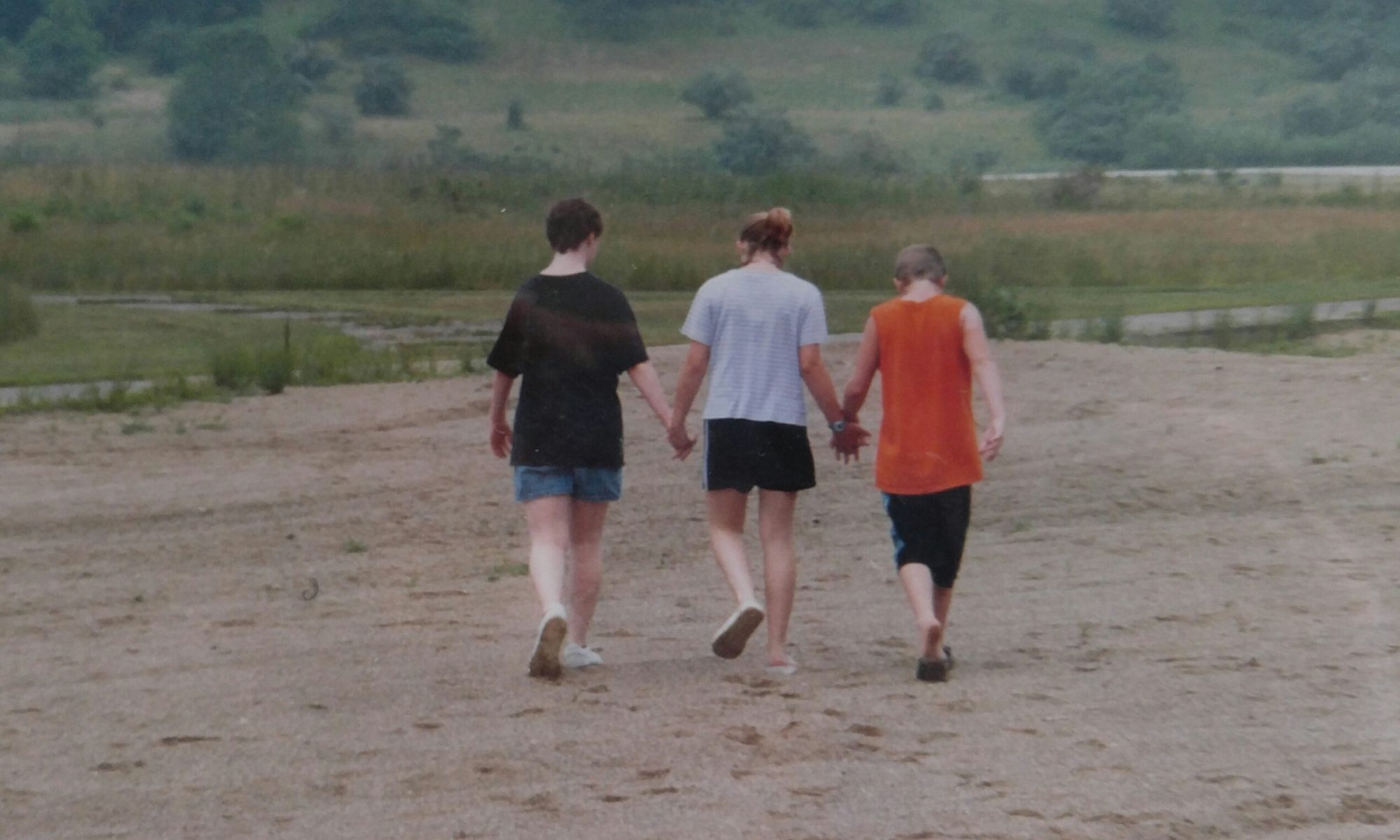
Look at the picture with this post. What is it? A dog? A puppy? An animal? A pet? Blue? (That’s her name. 😊) Any of those guesses are right.
Have you ever noticed how many abstract thoughts you have every day? How many generalized ideas that you don’t really think about? Now consider your person with autism who struggles constantly with very literal thinking. Their thoughts are often black and white – concrete ideas.
Can you imagine being told that the four legged thing in your home is a dog, a pet, an animal and a Labrador retriever? For us “typical” people, that’s all true, but if you think that everything has one label, it’s confusing and makes no sense.
Casey really struggled with labels when she was in elementary school. She simply couldn’t understand that the word “animal” meant so many things. Or that the word “dog” could be our black lab and Grandma’s furry pet. Cows could be black or white or brown. Trees could be maple or oak or pine. They all looked so different, but had the same name. She would get angry about the different labels for the same things.
She was in junior high before she started realizing it was okay for objects or people to have different names. Imagine her shock to discover her Mommy Jen was also Uncle Jeff’s sister (Jenny), and Grandma and Grandpa’s daughter! I was a mommy, a daughter, a sister, an aunt, a cousin, a niece, a granddaughter, a friend. It was too much for Casey to understand. When she was young, she knew Mandy was her sister and Rob was her brother, but she wouldn’t call herself a sister, because that was Mandy!
Imagine you are told you are going to McDonald’s, only to discover you didn’t go where you thought! There are thousands of McDonald’s, and they are similar, but so different. How confused would you be? And remember, while you are trying to understand this, people are constantly trying to get you to label items and tell them what you want!
But – how can you label something with so many names? You are struggling to get words to come out, already, and now you don’t know what word to use. You are thirsty. Do you say cup? Drink? Water? Juice? Thirsty? The color of your favorite cup? Because every one of those words will get you a drink. As an adult, if you were in this position, how frustrated would you be?
Rob seemed to grasp generalizing a little more than Casey did. He knew dogs and cats were both animals, but he didn’t care. He understood people had different names. (Casey still struggles when people have the same name. She gives them an extra name, such as “Our Tracie” and “Other Tracy.” She doesn’t mean anything by it – it’s just her way of separating two people. 😊)
When you are trying to help your child learn words, consistently use one word for each item. Say “cup” every time, not mug or glass. Say “shoes” not sneakers or boots or flip flops. All of that can come after your child understands when you say shoe, he needs to put something on his foot.
We used PEC cards with Casey for a while and she learned quickly, but then I realized she thought of a drawing when she said cup and not an actual cup. We switched to using actual pictures of items versus the print out designs and this helped so much.
I made books for Casey and Rob with pictures of people, places and common items. They could carry their books (I had one for home and school) and could point to what they needed.
Abstract and general pictures worked a little, but the actual photos were better. They didn’t have to wonder if the pencil drawing of a book meant the same as an actual book. Don’t assume your person with autism can generalize like you can. Remember how literal they think. There are no shades of grey.
Once your child can communicate her needs, you can decide to work on more generalization, if you see the need. Honestly, I don’t push that for Casey or Rob. It’s not a life skill they need. If they get confused, I explain and we go on.
Always remember when you are talking to a person with autism to use short, clear words and give them plenty of time to process what you said before you repeat it. Keep it simple and short and say exactly what you mean. Life will be so much easier for you and your child when you learn to do this!






